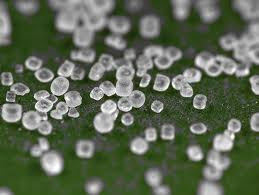How much sodium? Decoding nutrition labels
Guidelines for Americans, designed to give Americans a sense of what their diets need based on the newest food research.
But interpreting this information as a consumer can be tricky. After all, the numbers companies must print on packaged foods are only useful if you have a point of reference.
When you're deciding what to make for dinner, experts say that having a bit of background information allows you to make more informed decisions about the information you see on food labels.
Counting calories
"The most important thing there — and that's why it's in bold — is calories," said Keith-Thomas Ayoob, an associate clinical professor of pediatrics and registered dietitian at the Albert Einstein College of Medicine in New York. "That will determine whether someone gains or loses weight. Your body doesn't really care whether the calories come from sugar or fat when it comes to controlling weight."
As it says in the fine print, food labels are based on a 2,000 calorie diet — but the number of calories you actually need can vary. The American Heart Association recommends consuming anywhere from 1,600 to 3,000 calories per day depending on your age, gender and lifestyle.
There is also some variation in how much you need of the different vitamins and minerals, based on your age. The daily values listed on food packages after each vitamin or mineral are based on the highest amount needed by any age group, Ayoob said, which ensures that anyone following the labels will be getting enough of the vitamin, if not a little extra.
But interpreting this information as a consumer can be tricky. After all, the numbers companies must print on packaged foods are only useful if you have a point of reference.
When you're deciding what to make for dinner, experts say that having a bit of background information allows you to make more informed decisions about the information you see on food labels.
Counting calories
"The most important thing there — and that's why it's in bold — is calories," said Keith-Thomas Ayoob, an associate clinical professor of pediatrics and registered dietitian at the Albert Einstein College of Medicine in New York. "That will determine whether someone gains or loses weight. Your body doesn't really care whether the calories come from sugar or fat when it comes to controlling weight."
As it says in the fine print, food labels are based on a 2,000 calorie diet — but the number of calories you actually need can vary. The American Heart Association recommends consuming anywhere from 1,600 to 3,000 calories per day depending on your age, gender and lifestyle.
There is also some variation in how much you need of the different vitamins and minerals, based on your age. The daily values listed on food packages after each vitamin or mineral are based on the highest amount needed by any age group, Ayoob said, which ensures that anyone following the labels will be getting enough of the vitamin, if not a little extra.
